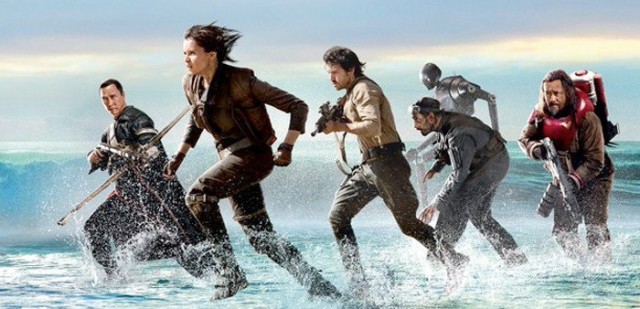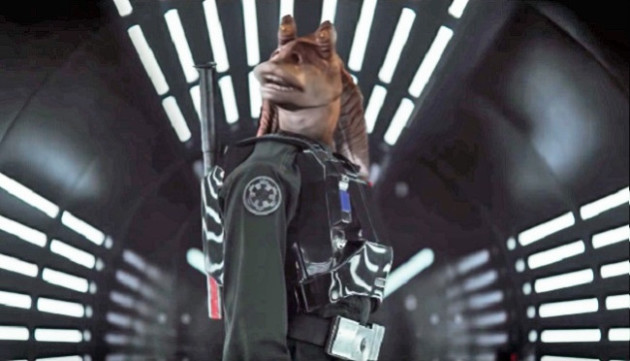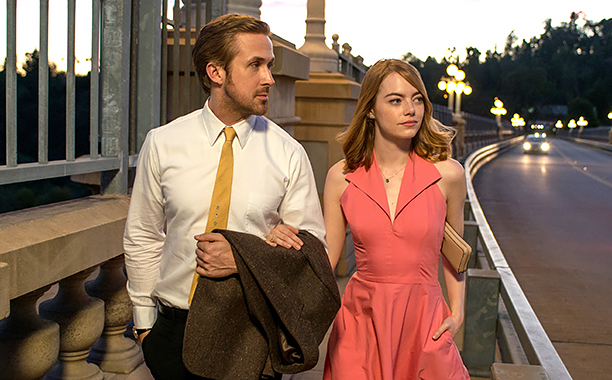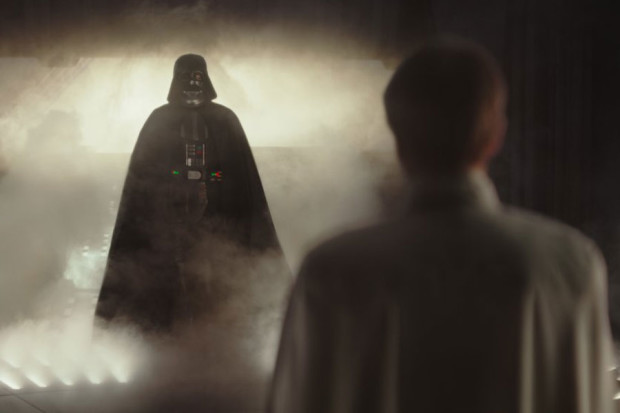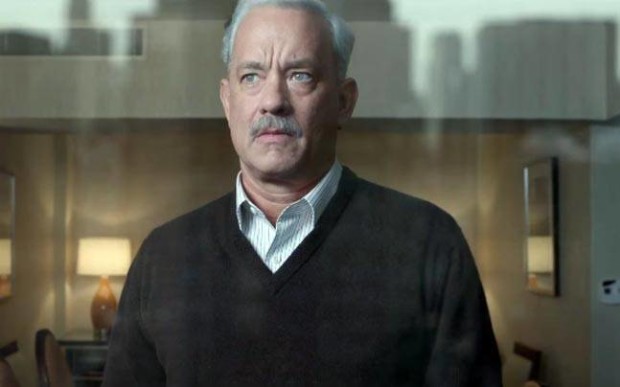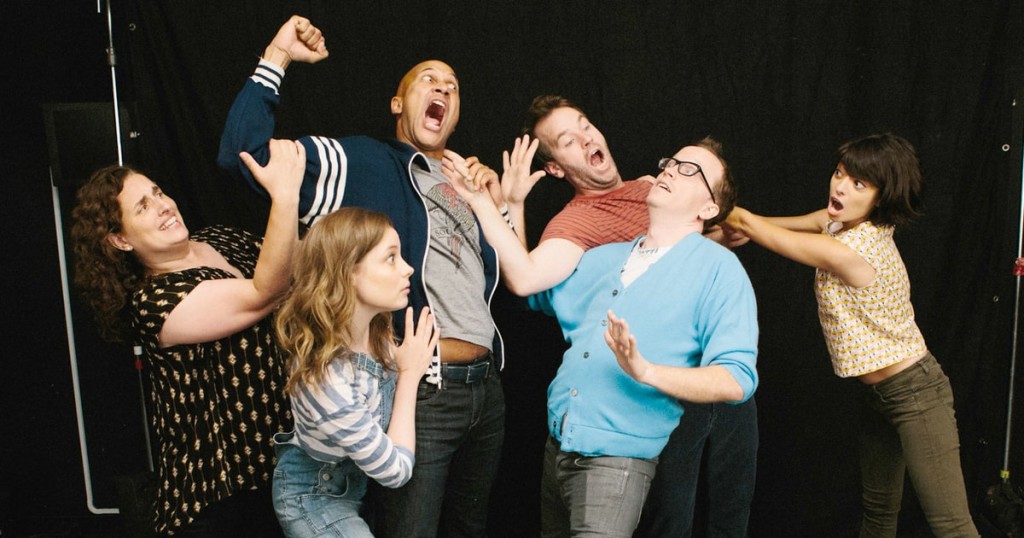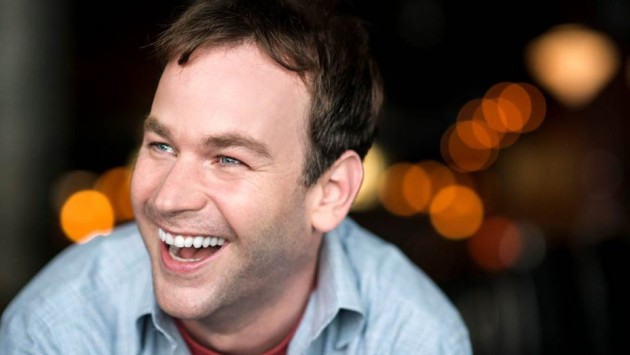There’s a famous line in Star Wars that was the general audience’s introduction into the power of backstory. It was uttered by Luke Skywalker. “You fought in the Clone Wars?”
The Clone Wars, all of us Star Wars fans marveled. What the fuck are those and how do I learn more?
You see, backstory is, in many ways, just as important as present story. Not for the audience. But for you, the writer. The more you know about the past, the more it will inform the present. And it lends itself to lines like that, which imply a bigger broader story, one that existed before, and will exist after, the story you’re telling. It’s sort of like a hack that makes movies feel more like real life.
Let me give you another example. Let’s say I’m writing a robbery scene. In the scene, a couple robs a home. Specifically, they’re looking for jewelry. As Kim Kardashian’s Paris heist taught us, jewelry’s got a ton of value yet it’s very portable. I want you to imagine this scene in your head. Go ahead, stop reading the article and play it out. How does it look?
I’m guessing generic. The couple pops into the house, looks for the bedroom where the jewelry is most likely to be, encounters a few obstacles. Maybe the family even comes home during the robbery and the couple has to escape without being noticed.
An okay scene. But now let’s start applying backstory. Let’s figure out what’s going on with this couple. Maybe the woman has been pressing the man to propose for awhile but he won’t do it. It’s a sore spot in the relationship.
Now let’s send them back into the house. This time, however, when the woman is rummaging through the jewelry, she comes across this gorgeous engagement ring. In the previous scene iteration, this ring means nothing. But now, with backstory added, it’s a reminder of what she wants and doesn’t have.
You could take this in a number of directions. It could spark an argument between the couple. It could be the “aha” moment she needs to realize what her life has become – following around a loser, robbing houses, when he won’t even commit to her. Maybe she walks out right then and there. Or it could be like the Clone Wars line – a simple peek into the past. She picks up the ring, stares at it, we see a sadness in her eyes, and that’s it. She throws it in the bag and keeps going.
However you look at it, backstory is now working for you. And again, this is just one tiny example. We didn’t get into the guy’s backstory. Why he’s robbing houses. What he needs the money for. That backstory would inform the scene as well.
And if you’re a real backstory junkie, you could think about who lives at this house and figure out THEIR backstory. That’s right. I’m encouraging you to create backstory for a character we don’t even meet!
What if, for example, they discover that the owner of the house has terabytes of child porn. What began as a routine robbery now becomes something much bigger. What if this man was rich and our couple realized there was a bigger payday at play here? They could use the child porn to blackmail the home owner.
The power of backstory! Just learning a few things about the past has already made this scene much better.
But let’s get back to our featured player – Rogue One – because it’s one of the more elaborate examples of backstory working for the present story.
The original Star Wars starts with a Rebel ship that has just stolen the plans to a super weapon. Now the amateur screenwriter knows the barest number of details that allow him to get this opening scene up and running. He doesn’t know what this ship was doing five minutes before he cut it on it. And he definitely doesn’t know what the characters were going through an hour ago. He focuses only on the here and now, and, as a result, he writes a scene that’s very static, very predictable. There can’t be any surprises if one doesn’t understand the specific events that got us here.
George Lucas, however, who we know tirelessly slaved over this story – he knows everything that went on before the Empire caught up with the Rebel ship. And it’s what helped inform Star Wars and make it one of the most specific science-fiction stories ever.
Am I saying that George knew every story beat that occurred in Rogue One before he wrote Star Wars. No. Am I saying he knew that Jyn Erso led the charge? No. Obviously, they had to change a lot of details from George’s notes to make Rogue One a standalone movie (and not just backstory). But you can bet a sandtrooper’s bottom that George knew how those plans were stolen and how they got to the point where the Empire was chasing them.
But this brings up a compelling question. When should backstory be relegated to backstory? And when should backstory be part of the present story? When should we see it? The answer to that question comes down to a few factors.
Is the backstory compelling, dramatic, or exciting? If so, it might be worth it to find a way to place it in the current story. In doing the backstory for Hoth (the ice planet in Empire Strikes Back), Lucas may have discovered that it was once heavily populated with Wampas (giant snow monsters). That’s cool! So it would make sense, then, to find a storyline where you could use a Wampa (and they do, as one kidnaps Luke).
Does it screw with the fluidity of the story? If it does, it may not be worth it. Star Wars could’ve technically began with the stealing of the Death Star plans. Would it have worked? Maybe. But it’s a little cleaner to start on the ship that’s just escaped. The Clone Wars, by comparison, are easy to ditch. They would’ve required us to start the movie 20 years prior before making an odd cut to the present. Talk about screwing with fluidity. It should be noted, however, that Rogue One starts 20 years in the past, setting up Jyn Erso’s character as a child. So it’s a judgement call. However, fluidity should always be taken into account.
Does the backstory tell us a lot about your character? This is the hardest call to make in regards to backstory. Character is so important and the more you know about someone, the more you care about them. So it’s in your best interest to tell us as much about a character as possible. The problem is, if we’re watching your character dick around for 30 minutes before the story revs into action, we’re going to get bored. So you have to find a balance. Luke’s introduction in Star Wars is one of the braver segments of the film. We stay with this very quiet sequence of a boy stuck on a farm for a long time. Technically, we could’ve introduced him, have him go pick up a droid, come back to find his aunt and uncle dead, and sent him off to Mos Eisley. All that stuff about Luke wanting to leave and join the Rebellion would’ve become backstory. But by seeing that day-to-day inner conflict with our own eyes, it ensured that we fell in love with Luke. On the flip side of that, one of the complaints about Rey in The Force Awakens is that we didn’t know her well enough. And that may have been because Abrams sped us along through her Jakku segment too quickly. He decided to make other parts of her past backstory (indeed, we hear about other Rey-Jakku segments that were cut from the film). So backstory is always a judgement call with character. Try and find a balance.
The last thing I’ll say about backstory is that you don’t want to become too obsessed with it. If you’re focusing so much on backstory that you’re not writing your screenplay, you probably need to stop. When backstory obsession becomes writer’s block, switch over to writing the script. Because, ironically, one of the best ways to find backstory is to write about the present.
Good luck on your backstory journeys. The rest of the day will be my backstory to seeing Rogue One tonight! Review tomorrow!!!
Genre: Post-Apocalyptic
Premise: A library custodian is doing just fine as the last person on earth, until a young woman shows up and ruins everything.
About: This one just popped up on the 2016 Black List. Mike Makowsky has written and produced a lot of short films. But this is his first big breakthrough. The project is currently in pre-production and has one of the cooler casting pairings I’ve seen in awhile – Peter Dinklage and Elle Fanning!
Writer: Mike Makowsky
Details: 91 pages
I’ll be honest. My head is in another place right now. As in, it’s less than 48 hours until my Rogue One viewing. I’ve been watching all the interviews, priming myself for the big moment. I even bought white fudge covered Oreos to eat at the premiere in honor of the snow-monster alien in Rogue One, Moloff. Yes, I have issues.
But we have a job here to do on Scriptshadow. And that’s review scripts. And we have a good one today. It’s one of my favorite genres – the post-apocalypse! So let’s see what newcomer Mike Mokowsky has to say in this well-traveled space.
We meet our hero, Del, walking into a house – a house that clearly isn’t is – and casually removing batteries from every electronic device he can find. Del isn’t burglarizing the place. There isn’t anybody left to burglarize.
Nope.
It’s the apocalypse. And Del is the last person left. But unlike most people post-apocalypse, Del doesn’t sit at home all day and fart around. He works. In fact, he’s taken it upon himself to clear all the dead bodies out of town, clean all the houses, and make everything as sparkling clean as possible.
Oh, and retrieve everyone’s late library books.
You see, Del was a custodian at the town library. He’s a man who appreciates order. And he’s about 75% of the way through making this town great again.
That is, until Grace shows up. Grace is 19 and wants one thing – to fuck! Surprisingly, Del doesn’t want to fuck Grace. In fact, he doesn’t want Grace at all. He wants everything the way it was. Him and this town. Del likes being the only sheriff in Dodge.
Grace can’t believe this. I mean, what red-blooded heterosexual male doesn’t want to go pornhub on a pretty young girl? But Grace quickly realizes that Del isn’t like other red-blooded heterosexuals. Actually, Del isn’t like anybody. All he cares about is order.
But Grace gradually charms her way into Del’s good graces. And Del reluctantly allows her to help him finish cleaning the town. Of course, just when things seem to be going well, some outside forces swoop in to screw it all up. But when those forces threaten to take Grace, will Del even give a damn? Or will he finally realize the importance of human connection?
I find that these scripts are very hard to write after the initial setup. I mean, every script is hard to write after the setup. But there’s something about the limited character situation of an “all-alone” post-apocalyptic story that hamstrings it after you’ve roped the reader in with the, “Nobody’s around anymore!” hook.
In many ways, then, these screenplays require the best writers to pull them off. When all you have is two characters, you better know how to write characters and dialogue. And luckily for us, Mike does.
For starters, built-into-the-characters conflict helps. The more different you can make your characters, the better. Because when characters see the world differently, when they have different agendas, they’re naturally going to provide good dialogue. Del likes order. Grace loves chaos. Perfect!
It’s a lot harder if characters like each other and everything is going well. Watch any sitcom to see what I mean. When the characters are at odds (Sam and Diane in Cheers), they’re interesting. The second they get to together, they become boring. It happens EVERY SINGLE TIME.
The other benefit of this is that, even without a plot, you have a built-in story engine. It’s not one of the bigger engines (a goal, a mystery, a chase), but it still works. I’m talking about the desire to see your at-odds characters finally come together. This is what they use in Rom-Coms and it can be used in any love story where the characters are at odds with one another. It requires us to like the characters, of course, but luckily, we love the characters in I Think We’re Alone Now.
And that’s where Makowsky really separated himself. I’m going to beat a dead horse here by mentioning this yet again, but: SPECIFICITY. Specificity in character is one of the ways you can tell a pro from an amateur.
This is why I push you guys to write those character bios, those character backstories. Because the more you know about your character’s past, the mores specific you can make them.
Take Del here. I’m guessing that in earlier iterations of the story, Del’s job was something generic. A desk clerk. A supermarket cashier. The kind of thing every writer thinks of within the first 10 minutes of exploring a character.
But by digging deeper and really trying to figure out what Del’s life was like before the apocalypse, Makowsky came up with this “library custodian” idea. And notice how once you have a job that specific, you can inform the entirety of the character’s motivation, and of the movie itself.
What does a custodian do? He cleans. What does Del do during this story? He cleans up the city. He also collects all un-returned library books from the houses. How brilliant is that? Why is it brilliant? Why does it work? Because it’s SPECIFIC. And it’s specific because the writer did the work.
Another thing I want to bring attention to is the idea that you don’t always have to work in absolutes. We have a tendency, as writers, to write to the extremes. And while sometimes that’s good, you don’t ALWAYS want to do it, or else things feel too dramatic, too over-the-top.
Grace comes from a religious family. Her father was a pastor. She watched everyone in the world die one day. Later in the story, Del asks her, “Do you still believe?”
It’s a somewhat innocuous question. But I’ve read so many scripts where the answer would’ve been something like: “I’ve watched everybody on the planet die. Do I think there’s a God? God is fucking dead.” And then the writer builds Grace’s flaw around that. And in the end of the story, she learns to believe again and blah blah blah.
Instead we get this: “I have no idea. I’m in the market if you’ve got anything good.”
It’s such a kind line and it works because it’s truthful. Sometimes we get so caught up in movie logic and the desire to write that big fat juicy line that we forget what the characters would really say. Oftentimes, the quieter more realistic line would’ve painted a more truthful depiction of the moment. It was stuff like this that made this script stand out.
My only issue with “I Think We’re Alone Now” is the ending. I don’t want to spoil anything so seek the script out if you want to find out what happens. But it felt like it came out of left-field – one of those endings where the writer knew he had to go bigger, and it ended up being too jarring, an unnatural extension of what came before it.
With that said, this is great example of strong character work, of strong dialogue, and a great inspiration piece if you ever want to write your own post-apocalyptic screenplay. Check it out!
[ ] What the hell did I just read?
[ ] wasn’t for me
[xx] worth the read
[ ] impressive
[ ] genius
What I learned: A general understanding of your character is what leads to a generic character. The more specifically you know them, the more specific their character will be.
Waaaaaaaay too much going on right now to put up a regular post. As we get closer to X-mas, I expect things to get even more unpredictable, so I’m warning you now.
With that said, let’s start Mish-Mash Monday off with a big round of applause for our four Scriptshadow Tournament Semi-Finalists!!! You guys fought the long hard battle and here you are, in the Final Four. CONGRATS!
SEMIFINALIST #1
Wild-Card
Title: Odysseus and His Boy
Writer: Steffan DelPiano
Genre: Period
Logline: With only one night to act, two rival soldiers must sneak behind enemy lines to complete a last-ditch suicide mission that will finally put an end to a decade-long conflict.
SEMIFINALIST #2
Wild-Card
Title: Cratchit
Writer: Katherine Botts
Genre: Mystery & Suspense/Fantasy/Horror
Logline: “A Christmas Carol” reimagined, told from the point of view of Bob Cratchit as he and Ebenezer Scrooge race to track down Jacob Marley’s killer — the same killer who now targets Scrooge and Cratchit’s son, Tiny Tim.
SEMIFINALIST #3
#3 seed
Title: The Bait
Writer: Billie Bates
Genre: Romantic Comedy
Logline: An untrusting woman, employed to seduce men prior to marriage for concerned wives-to-be, has her world turned upside down when she falls for her latest target.
SEMIFINALIST #4
#1 seed
Title: The Savage
Writer: Chris Ryan Yeazel
Genre: Historical Biography
Logline: The incredible true story of Squanto, the Patuxet Indian who was kidnapped from the Americas as a child and who then spent his life fighting impossible odds to return home, setting in motion a series of events that leads to one of the most significant events in American history.
We’re going to wait three weeks to get to the semis with next Friday being Rogue One, the week after being Christmas, and the week after that being New Years. So take advantage, semifinalists, and make any last changes to your script you need to make!
Next up, I want to talk me some Rogue One. Because Rogue One that’s why!!
Star Wars’s little brother had its premiere on Saturday and will be hitting theaters Thursday night. I will be seeing the film then and reviewing it this Friday. If you go off of tweets like these, you’d think this was the next coming of Empire Strikes Back.
But these post-premiere Tweet Parties always leave me a little suspicious after the infamous Fantastic Four Atlanta premiere. I get the feeling there’s some wink-wink nod-nod disclaimer everyone signs that states, “Unless you absolutely love the film, you’re not allowed to tweet about it.”
How else did not one negative tweet about the film surface? I mean there are reviewers out there who literally hate everything. Where are their Star Wars tweets? And this movie was plagued with a TON of issues. Every single film checkpoint movies are supposed to hit, Rogue One was several months late on. So I’ll continue to wait and try to stay optimistic.
On to something I’m not optimistic about – Sully.
I finally saw this film. As you guys remember, I hated that this movie got made. I said it again and again – THIS IS NOT A FILM. A pilot crash-landing a plane due to a bird strike where everyone lives and is fine IS NOT A FILM. You know what a film is? When you crash land in the Andes, don’t have any food, AND HAVE TO START EATING EACH OTHER. That’s a film.
So lo and behold, after watching the movie, imagine how surprised I was to find out…
IT WASN’T A FILM!
This movie was effing awful. Like HAD NO REASON TO EXIST awful. The whole thing is exactly what I knew it would be. Captain Sully looking overwhelmed or constipated, combined with the crash-landing. I heard they had given us six versions of the crash to maximize the impact of what had happened. That wasn’t true. They gave us six versions of the crash BECAUSE THERE WASN’T ANYTHING ELSE TO SHOW!
The main character was boring as shit. The aftermath of the crash itself was without incident. There was NO DRAMA. None. Don’t get me wrong, they tried to create some with this artificially constructed nonsense of the FAA trying to paint Sully’s choice as a mistake. But WHO THE FRICKIN HELL BELIEVED THAT? How easily manipulated do you have to be to buy into a writer trying to sell you that nonsense? That Sully could end up disgraced as opposed to a hero?
The fact that this film received an 85% on RT is a joke. Every reviewer who gave this a positive review needs to revoke their credentials until they read 100 screenplays and understand how this medium works. Not to mention all of Eastwood’s movies feel like they were directed by a 174 year old man.
Oh, and by the way, Sully. You just saved 155 people. Would it be asking too much for you to smile once inside of 2 hours??
Oh my God was this movie bad. [x] What the hell did I just watch.
Finally, I’m getting intrigued by this Oscar race. It’s the first time in a decade where there’s no clear front-runner this late in the year. I mean, let’s be honest. They plan out who wins these things well in advance. And this January, the decision was made that it would be Birth of a Nation. When that film and its messy background imploded, everyone was like, “What do we do now??”
People really want La La Land to take the lead. And it might. I don’t click with Chazelle’s writing but the guy has a nice directing eye for sure. It’ll depend on the songs and if the soundtrack takes off.
Also, because the Oscars wants so badly to right its #Oscarssowhite image from last year, they’re desperately trying to find that Birth of a Nation replacement. Moonlight appears to be the leading candidate. But every time I see promotional material for that film, a man is holding a kid in some water. I can’t think of an image less likely to make me want to see a film.
Lots of people like Hacksaw Ridge. But I don’t think Hollywood will ever truly forgive Mel for what he did. With that said, Gibson tells a funny anecdote about a recent interview with Anderson Cooper he did regarding the film. Cooper cornered Gibson with the question, “You know people are loudly booing when your name comes up in the opening credits. What do you think about that?” “They’re loudly booing when?” Gibson asks, “in the opening credits?” “Yes, people loudly boo when your name comes up in the opening credits.” “Oh, that’s interesting, there aren’t any opening credits in the film.”
Say “ouch” if you’re Anderson Cooper.
Have you guys seen any of these films? What’s your take? I trust you more than these Rotten Tomatoes guys, that’s for sure. And who’s your leading contender for the Oscar?
Oh, and Black List announcements today at 9am! Hope to find some new gems. :)
THE WINNER HAS BEEN ANNOUNCED BELOW
The final week of the Quarterfinals is upon us! After Sunday, we’ll have the FINAL FOUR!
The Scriptshadow Tournament is the only screenplay tournament in history where you, the readers, vote on who wins. We started with 500 entries. Based on logline and pitch, 40 of those were chosen by myself to compete in the tournament. Those were whittled down to 12 Quarterfinalists. Of those 12, 3 have been chosen for the Semifinals. This is the last Quarterfinal round, and therefore will reveal the final Semifinalist.
Here’s how this works. Read as much from each script as you can. Then vote in the comments section which script you think deserves to go into the Semifinals. Please explain why you voted for the script so that we know you’re a real voter and not a friend of the writer or screenplay voting bot. As always, I’ll leave it up to the writers to decide if they want to summarize their changes in the comments.
Voting closes at 10pm Pacific Time Sunday evening, when the winner will be announced.
Good luck everybody!
#1 SEED
Title: The Savage
Writer: Chris Ryan Yeazel
Genre: Historical Biography
Logline: The incredible true story of Squanto, the Patuxet Indian who was kidnapped from the Americas as a child and who then spent his life fighting impossible odds to return home, setting in motion a series of events that leads to one of the most significant events in American history.
#8 SEED
Title: Thrills, Kills and Scotch
Writer: Mayhem Jones
Genre: Drama/Psychological Thriller
Logline: A psychopathic magazine editor copes with the hiring of an old rival by killing a fashion model in a twisted revenge plot..
WILD-CARD
Title: Divide and Connor (formerly “Breaking Them Up”)
Writer: David Waddell
Genre: Comedy
Logline: Convinced that his constantly feuding parents are headed for a divorce, a 14 year old sets out to find new lovers for his mom and dad in hopes of ending their marriage.
WINNER OF QUARTERFINAL WEEK 4: Wow. Another freaking close race. And I’m not surprised. There’s been a lot of love for Chris and David’s scripts from the beginning. This is the first week that I’ve had to use a rule to decide the winner. I know one last reader voted for Divide and Connor last night. But it did come after 10pm pacific time. For that reason, the script moving onto the semifinals is… The Savage by Chris Ryan Yeazel! Congrats to Mayhem and David for making it this far. I know David, in particular, is taking this hard. Don’t sweat it, brother. You’re a really good writer. Make sure to enter the Shorts Contest! Maybe we’ll end up turning your short into a movie. Moving on, next Friday is Rogue One review and the Friday following that is Christmas. Then the Friday following THAT is New Years. So the first semifinal post will be January 6th. Seeya then!
So I want to share a rare experience with all of you, something that doesn’t happen to me often these days. I sat down to watch a movie, and for the next 100 minutes was completely unaware that I was watching a movie.
In my reality, everything is analyzed. Even if I don’t want to analyze, I analyze. Oh, what a perfect setup for that character. Oh, what a terrible way to open that scene. No! You could’ve milked that moment so much longer. Ugggh, you should’ve focused the story on this character. He’s so much more interesting!
None of that happened in this movie. What movie am I talking about? It’s Mike Birbiglia’s film, Don’t Think Twice (Here are Mike’s six tips for making it in Hollywood). It’s about a long-time improv group, all of whom are in their 30s. When their improv space closes down, they have to face the reality that maybe this is it. Maybe they need to go out into the real world and give up on their dreams.
Things go sideways when the flashiest member of the group, Jack, becomes a cast member on Weekend Live (a “Saturday Night Live” stand-in). Not only is there all this pressure on Jack to succeed. But there’s pressure on him to bring his friends up with him. In the end, that pressure becomes too much for everybody and… well, I’ll let you watch it yourself to find out what happens.
So what made this experience so impactful?
One thing: The characters.
Whenever I see a writer pull great characters off, I take a good two hours afterwards to digest it all. Because character-creation remains the single most difficult thing to do in screenwriting.
Anyone can create characters. You think of a person then give them a name. And sadly, that’s how most screenwriters approach character creation. But to build characters who move you? Who leave you in tears? That’s the real test.
How did he do it? How did Mike Birbiglia move someone who’s used to all the tropes and sees them coming from a mile away? Let’s see if we can shed some light on that question.
First of all, there’s no question that the performances in “Don’t Think Twice” were amazing. I know it doesn’t help us as screenwriters to say that. But we can’t deny that that’s part of it. However, actors can’t make chicken salad out of chicken shit. They need a foundation to start from. And if the foundation of their character isn’t in the script? Forget about it.
One thing I noticed is the same thing I was talking about in Isle of Man, which is this notion of specificity. Specificity isn’t listed in most character creation articles because it’s more of a peripheral thing. But boy does it have an effect on the finished product.
Just like Younger knew the motorcycle racing world and the people in it like the back of his hand, Birbiglia knows the improv world and the people in that universe like the back of his entire body. I wouldn’t be surprised if these characters were amalgams of many people he’s known in the community for years.
The girl who’s working on that graphic novel for the ninth year and who everybody knows will never finish it. The guy where improv comedy is the only thing he has in his life. The teacher who teaches all these successful people, yet isn’t successful himself. The girl who can’t get out of her own way, sabotaging every chance at success she gets. The woman who’s gotten a free ride from her rich parents her whole life and has never known the meaning of hard work.
Specificity is the fruit of write-what-you-know’s labor. It isn’t so much the world that matters when you write what you know. But the characters, since those characters will be based on the types of people you’ve had personal experiences with. That’s what makes them SPECIFIC.
And the more specific you can make a character, the more we will believe that they’re real. And the more we believe that they’re real, the more we’ll root for them. And the more we root for them, the more emotionally devastated we’ll be when they don’t achieve what they set out for.
With that said, specificity is not about reams of character detail. It doesn’t mean that a character has to do something specific and unique on every single page. It merely means that the character is specific to the world they’re in. That they feel true and honest and not “made up” by a writer who’s clearly never stepped foot in the world he’s writing about.
If you look back at my above character descriptions, they don’t go for pages on end. They’re each simple and to-the-point. “The girl who can’t get out of her own way, sabotaging every chance at success she gets.” Not enough screenwriters do this – come up with that single specific sentence that identifies their character. As a result, they’re never sure who that character is. And you can feel that when they write them. You can feel that they’re searching for that character all the way until the final page.
There are other things going on here as well. These are all underdogs (an underdog is one of the easiest ways to get an audience to root for your character). They weren’t the popular kids at school. They were the nerds. And this is their only chance at becoming the popular kid. And you can see how much they want that. And because they want it, you want it for them.
But there’s something new I found in this movie. And this is going to sound cheesy, but I believe there’s something to it. The power of friendship. When two or more characters love each other, it’s like they double the power of the characters as individuals.
Because we don’t only want the character to succeed for themselves. We want them to succeed for their friend. We saw this on display in one of the greatest movies ever made – The Shawshank Redemption – with Andy and Red. Each of them were wonderful characters individually. But, in the end, it was that we wanted them to win together. That’s what sparked our tears when they meet up in Zihuatanejo in that final shot.
And I saw that here with this group. You got the sense that they all loved each other and it was “them against the world.” So when Jack makes it and that results in the group fractioning off, the engine that drives the story isn’t a goal, like we traditionally talk about on Scriptshadow, but rather our desire to see the group get back together, to be happy again.
I haven’t come up with a definitive model on how to do this, but they used it for the last fifth of “Shawshank Redemption,” after Andy escapes. And they used it for the last third of “Room,” where “Ma” was placed in a mental hospital. These are two of the most emotionally powerful movies in history, which is how I know this is something worth looking into further.
Finally, I’m a huge believer that a movie must end on some form of hope. You can take us to the lowest of lows, rake us through the shitshow of life. But if you don’t provide us with some sort of hope at the end – no offense to you or your writing, but fuck you. You wasted 2 hours of our lives.
The best part about “Don’t Think Twice” is that it’s able to provide us with hope without selling out. By “selling out” I mean not everyone gets on Weekend Live. Instead, the group goes its separate ways. And yeah, some of them quit improv. But everyone’s got a plan. Everyone’s going to keep fighting this complex ever-changing organism called life. And that’s all we need from an ending. To know that the characters aren’t going to give up on the world.
It capped off one of the most poignent and moving films of the year. Check it out if you haven’t already, and share you character observations in the comments.

